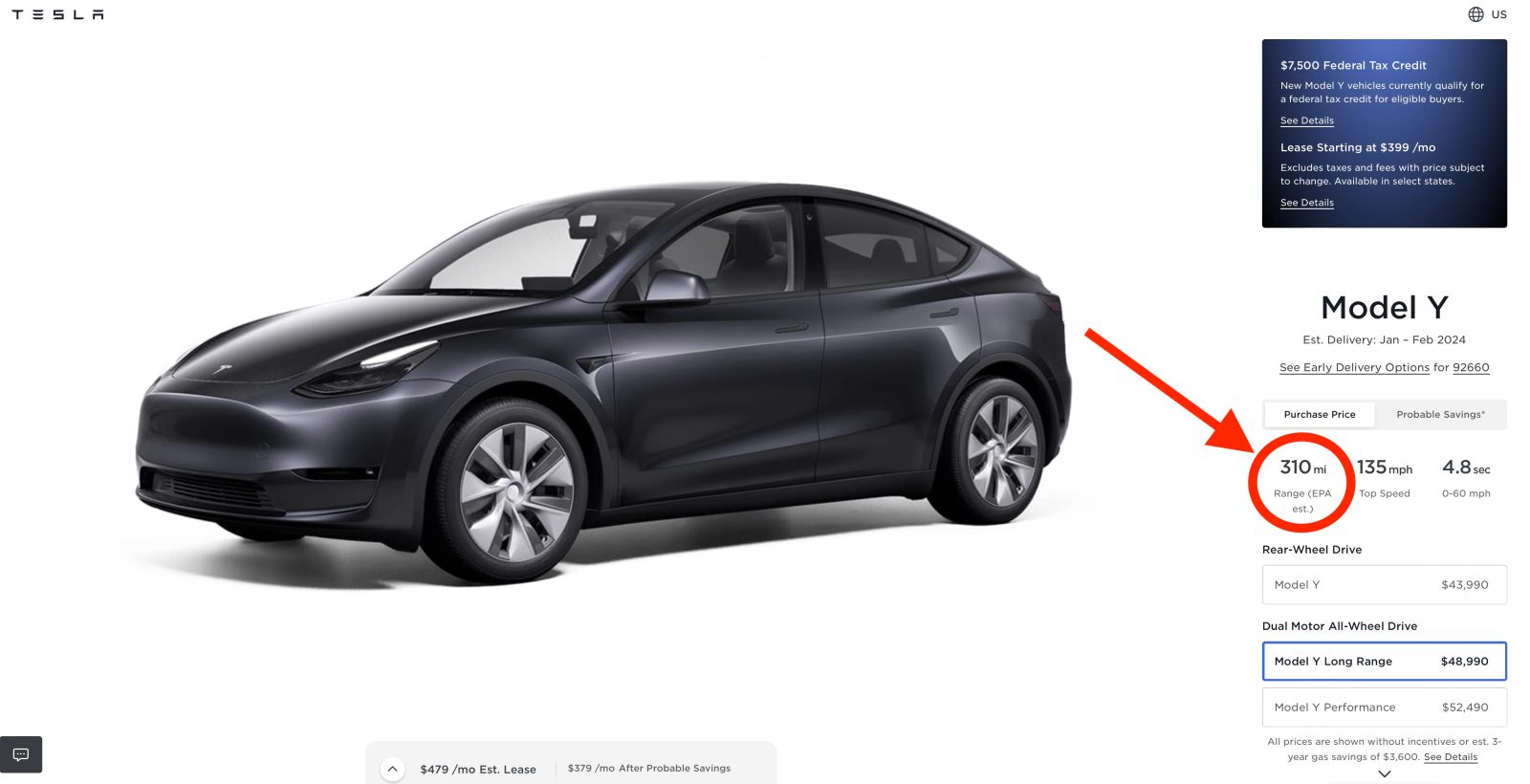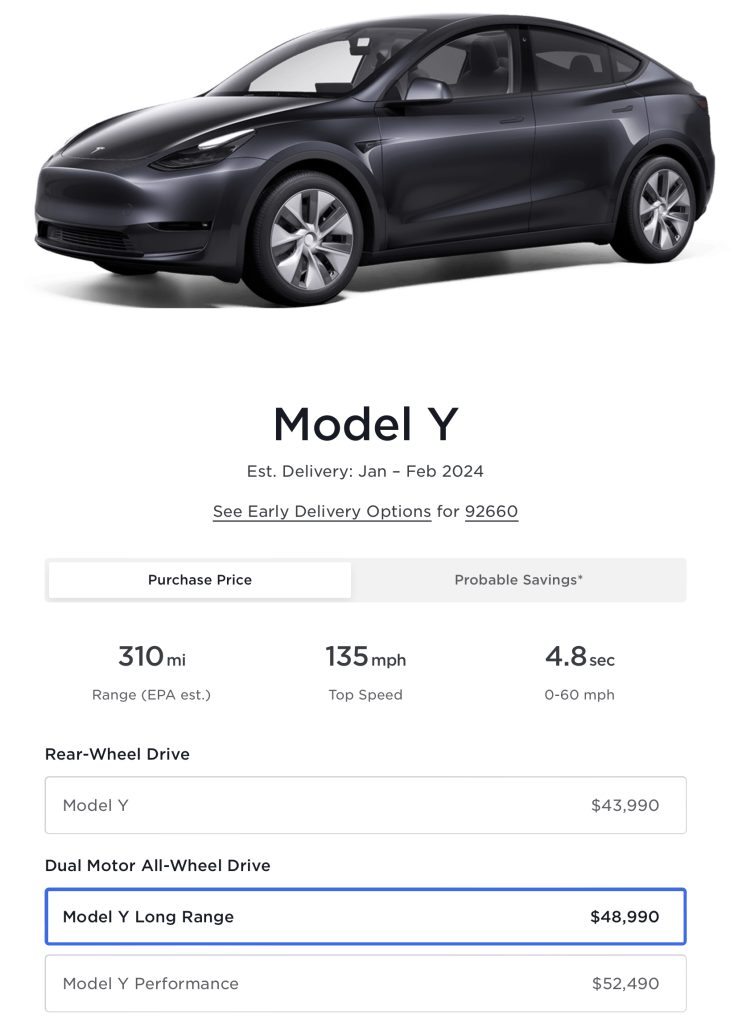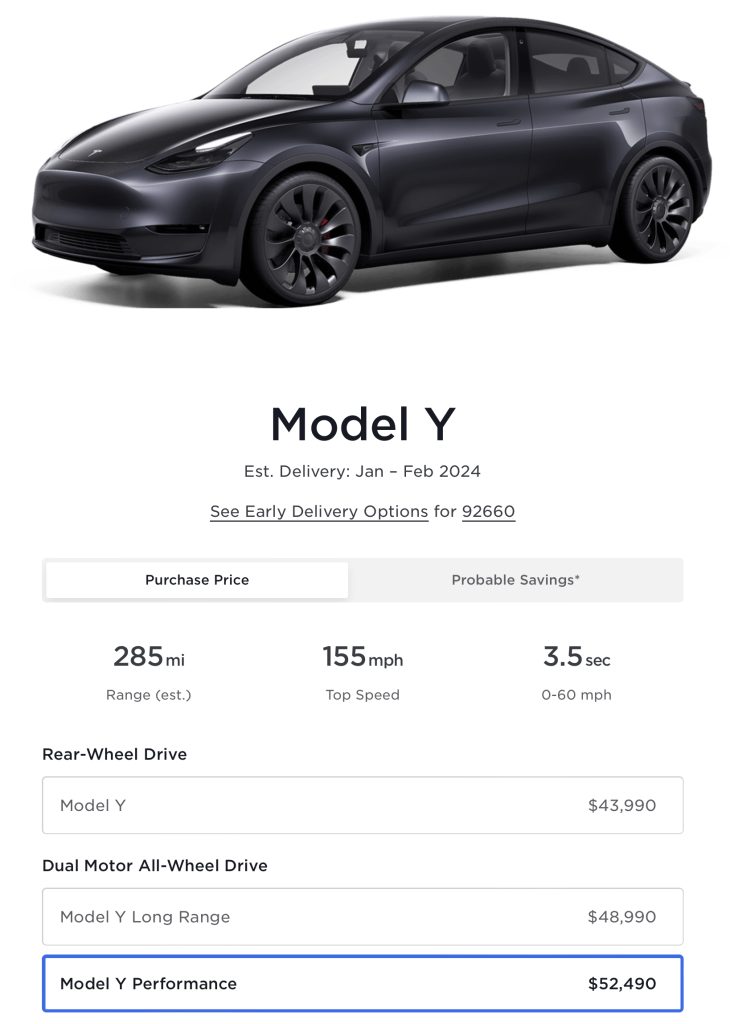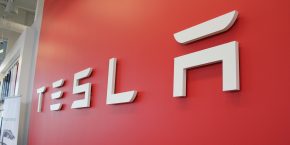
Tesla has updated its Model Y EPA range estimates, lowering the range of its Long Range and Performance models by 6% in its online configurator.
Specifically, the Model Y Long Range is down to 310 miles from 330, and the Model Y Performance is down to 285 miles from 303.
The cheapest Model Y, the Model Y Rear-Wheel Drive, which was introduced in the US in October, was not affected by the changes and retains its 260-mile range rating.
All three models have had no change in pricing since before the changes. The only changes we can see are the range estimates (and the two new colors).


The changes seem to be related to a change in EPA testing for model year 2024, requiring automakers to average EPA mileage over several drive modes, not just the most advantageous one.
It has long been known that Tesla “vastly” overstates its range on its cars. While it is possible to meet EPA estimates if you drive efficiently (and I often do, or get close), Tesla tends to do disproportionately worse in real-world range tests than all other manufacturers, on a level playing field.
EPA tests allows some amount of discretion on the manufacturers’ part to raise or lower their range estimates by employing additional tests and applying an “adjustment factor.” Some manufacturers even apply a voluntary reduction to lower their range estimates, so that drivers are more likely to exceed estimates than come up short.
You can see Tesla’s overstatement for yourself: in a Tesla, charge your car up to 300 miles of range, then tell your car to navigate to somewhere that’s, say, 260 miles away. Your car will route you through a Supercharger, because Tesla’s real range estimate knows that its stated ranges are unrealistic.
So these ~6% changes won’t quite make up for all of Tesla’s range overstatement, but will bring the numbers closer to a realistic point.
However, this is only for two trims of the Model Y. We don’t know if Tesla’s other vehicles will end up having similar range estimate changes soon, although they all have suffered from the same range overstatement issue. So we would hope/expect to see corrections for other Tesla vehicles soon as well.
Update: Tesla has now updated range on its other vehicles as well.
Electrek’s Take
Top comment by macb00kemdanno
I’ve never gotten anywhere close to 263 miles or 330 miles in our Model 3 SR+ or Model Y LR, respectively. This is more in line with the real world highway range IMHO, but still a few percentage points off.
Now they just need to address the inflated Model 3 numbers.
At the end of the day, these range changes probably don’t really matter much. We don’t know what changed to get us here (and the company does not have a communications department to clarify changes like these when they happen), but Tesla tends to raise and lower the ranges of its cars randomly without any apparent physical changes to the battery, so really, nothing probably changed on the cars themselves.
Range is a fuzzy number anyway, meant to give a general idea of how far you can go, but can’t possibly take into account every situation in a single number. The phrase “Your Mileage May Vary” isn’t just informal slang – it originally applied to vehicle mileage, to describe how people will get different MPG in different situations. So, too, with range.
And frankly, I’m pretty tired of everyone treating range as the end-all-be-all of EV specs anyway. So while I dislike Tesla’s constant overstatement of range, making people think they need more range than they actually do and leading to ever-increasing range numbers beyond what’s realistically necessary (and leading to fewer larger, heavier, more expensive EVs in a constrained battery production landscape), I kind of do like when it randomly changes the range of its cars, showing everyone that the numbers are all made up anyway and you probably shouldn’t take them too seriously.
What’s more important is: learning to drive efficiently (if you need to go farther, slow down a bit), and ensuring that there are enough DC fast charge stations out there to give people a boost when they need it. If we all focus more on those things, then range will be something that we rarely need to think about anyway.
FTC: We use income earning auto affiliate links. More.




Comments